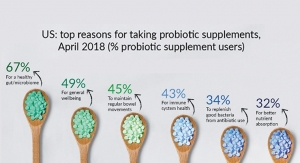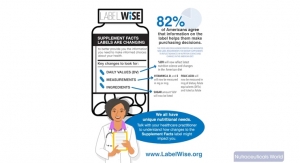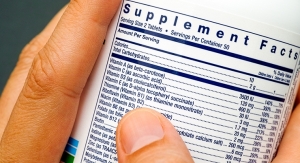09.23.19
Senate Majority Leader Mitch McConnell has added $2 million to the Senate Agriculture Appropriations bill for FDA to further implement provisions of the 2018 Farm Bill legalizing hemp-derived cannabidiol (CBD) while urging the agency to quickly develop a legal solution to market these products.
The Council for Responsible Nutrition (CRN) commended those efforts and said it strongly encourages FDA to exercise the statutory discretion provided in the Food, Drug & Cosmetic Act to recognize a new legal category of CBD dietary supplements. Despite the general presumption, often cited by the FDA, that a dietary supplement may not use an ingredient that was previously on the market or clinically investigated as a drug if the drug was marketed first, the FDA has compelling reasons to make an exception in the case of CBD.
In this case, GW Pharmaceuticals has an epilepsy drug, Epidiolex, which contains CBD currently approved and on the market. The strong consumer interest in CBD, the burgeoning market for these products, and the vast differences in dosages between prescription drugs and supplements containing CBD all argue for the quick exercise of that discretion by FDA, according to CRN.
Once that regulatory pathway is created, CRN believes the agency should fully enforce all the legal and regulatory requirements on the books that currently exist for other dietary supplements. These would include the requirements for all new dietary ingredients that their marketers demonstrate the products are reasonably expected to be safe prior to entering the market. Senator McConnell’s provision for a period of enforcement discretion by the FDA would allow firms already marketing CBD products to bring their dietary supplements into compliance and incentivize manufacturers to conduct new research and share their safety data with the agency, according to CRN.
The creation of a clear legal pathway along with strong FDA enforcement of all requirements for these CBD products is the most effective way to foster new research around the safety and benefits of CBD and assure consumers of a safe and innovative marketplace, CRN said.
“When a marketer puts a supplement facts label on a product, it is a very real promise to obey the rigorous rules policing supplement manufacturers,” said Steve Mister, CRN president and CEO. “That means, among other things, that it is adhering to good manufacturing practices, registering its facilities with FDA, giving consumers a manner to report any adverse events, accurately listing all ingredients on the label, and refraining from making illegal drug-like claims.”
“The instant FDA creates a legal CBD supplement market, there is a well-developed body of law and regulations governing dietary supplements that can and should be enforced,” Mister added. “While CRN is always seeking additional resources for the FDA, it won’t take much for the FDA to have a big impact. Several high-profile enforcement actions would change the calculation of risk by companies who may be skirting the requirements of the law and can immediately change behavior.”
“The FDA could literally take this action tomorrow and begin fully regulating the CBD supplement industry, and we implore them to do so. That’s the surest path to safety and innovation,” Mister concluded.
The Council for Responsible Nutrition (CRN) commended those efforts and said it strongly encourages FDA to exercise the statutory discretion provided in the Food, Drug & Cosmetic Act to recognize a new legal category of CBD dietary supplements. Despite the general presumption, often cited by the FDA, that a dietary supplement may not use an ingredient that was previously on the market or clinically investigated as a drug if the drug was marketed first, the FDA has compelling reasons to make an exception in the case of CBD.
In this case, GW Pharmaceuticals has an epilepsy drug, Epidiolex, which contains CBD currently approved and on the market. The strong consumer interest in CBD, the burgeoning market for these products, and the vast differences in dosages between prescription drugs and supplements containing CBD all argue for the quick exercise of that discretion by FDA, according to CRN.
Once that regulatory pathway is created, CRN believes the agency should fully enforce all the legal and regulatory requirements on the books that currently exist for other dietary supplements. These would include the requirements for all new dietary ingredients that their marketers demonstrate the products are reasonably expected to be safe prior to entering the market. Senator McConnell’s provision for a period of enforcement discretion by the FDA would allow firms already marketing CBD products to bring their dietary supplements into compliance and incentivize manufacturers to conduct new research and share their safety data with the agency, according to CRN.
The creation of a clear legal pathway along with strong FDA enforcement of all requirements for these CBD products is the most effective way to foster new research around the safety and benefits of CBD and assure consumers of a safe and innovative marketplace, CRN said.
“When a marketer puts a supplement facts label on a product, it is a very real promise to obey the rigorous rules policing supplement manufacturers,” said Steve Mister, CRN president and CEO. “That means, among other things, that it is adhering to good manufacturing practices, registering its facilities with FDA, giving consumers a manner to report any adverse events, accurately listing all ingredients on the label, and refraining from making illegal drug-like claims.”
“The instant FDA creates a legal CBD supplement market, there is a well-developed body of law and regulations governing dietary supplements that can and should be enforced,” Mister added. “While CRN is always seeking additional resources for the FDA, it won’t take much for the FDA to have a big impact. Several high-profile enforcement actions would change the calculation of risk by companies who may be skirting the requirements of the law and can immediately change behavior.”
“The FDA could literally take this action tomorrow and begin fully regulating the CBD supplement industry, and we implore them to do so. That’s the surest path to safety and innovation,” Mister concluded.
























